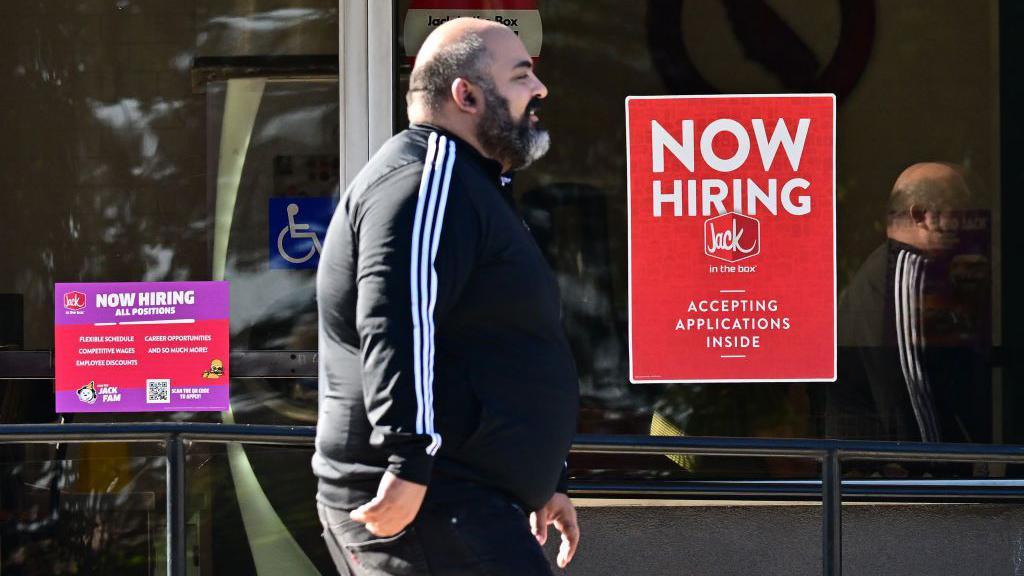Surprise surge in new US jobs in September

- Published
Hiring in the US surged unexpectedly last month, easing fears that the economy might be heading for a sudden, sharp downturn.
Employers in the US added 254,000 jobs in September, much more than expected, while the jobless rate dipped from 4.2% to 4.1%, the Labor Department said.
That was the strongest gain since March, and was far higher than the roughly 150,000 many analysts had forecast.
President Joe Biden welcomed the report, one of the last major pieces of economic data that voters will receive before the presidential election.
Surveys indicate public doubts about the economy have remained persistent, as a 20% rise in prices since 2021 weighs on sentiment.
Over the past year, job growth has also slowed and the unemployment rate has been edging higher, though it remains at historically low levels.
Last month, the US central bank cut interest rates by a bigger-than-usual 0.5 percentage points, saying it wanted to avoid any further weakening in the labour market.
But Friday's report showed solid wage gains and eased fears of a sudden change for the worse in the labour market.
"All in all, it was a much stronger report than we were anticipating," said Nancy Vanden Houten, lead US economist at Oxford Economics.
"If anyone was worried about the labour market being so weak that we were on the verge of a recession, then that should eliminate those worries."
Bars and restaurants led the hiring in September, adding 69,000 jobs, according to the report. Retailers and health care firms also reported job gains, while the manufacturing sector shed positions.
The Labor Department also updated its estimates of job creation in August and July, saying employers had added about 72,000 more jobs than previously thought.
Average hourly pay was up 4% over the last 12 months, according to the report, outpacing the pace of inflation during that time.
"Today, we received good news for American workers and families with more than 250,000 new jobs in September and unemployment back down at 4.1%," President Biden said.
"With today鈥檚 report, we鈥檝e created 16 million jobs, unemployment remains low, and wages are growing faster than prices."
- Published18 September
- Published25 July
- Published3 September
However, analysts cautioned that September can be a quirky month for data, given the start of the school year. Next month, job figures may be hit by the labour strike at Boeing and damage from Hurricane Helene.
Analysts said they still thought the Fed would cut rates in the months ahead, noting that price inflation seems headed back to the bank's 2% target.
But they said the stronger-than-expected job growth this month suggested the Federal Reserve would make smaller rate cuts in the future.
"They can move at a more measured pace," Ms Vanden Houten said.
"To cause them to move more aggressively again, they would need to see something really worrisome... and this report definitely isn't sending that signal."